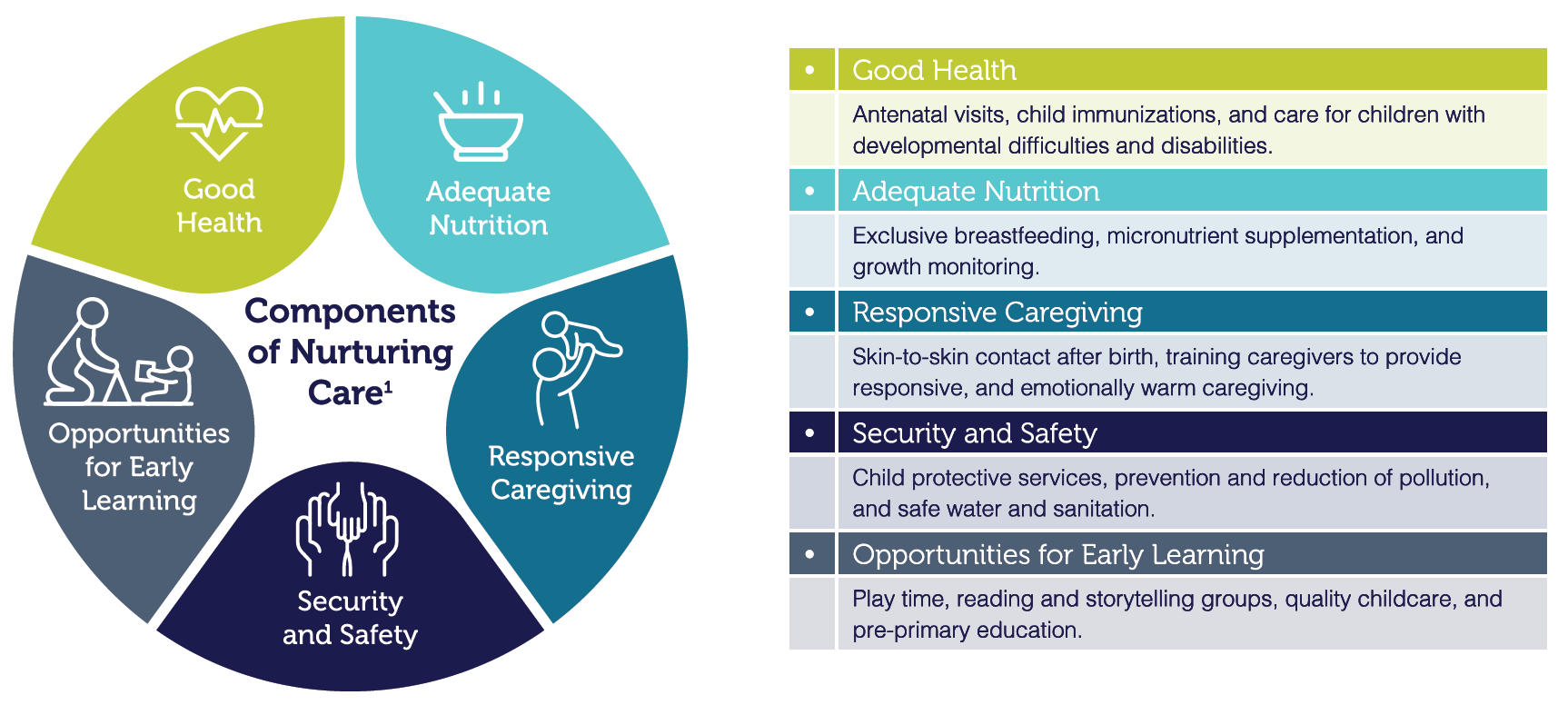
The Case for Early Childhood Development
Children can only reach their full potential under healthy, nurturing, and safe conditions that promote good growth, learning, and development.
The early years – in particular the first 1,000 days between pregnancy and age two – set the stage for a child’s healthy growth and development. During the first few years of life, more than one million neural connections are formed every second.
During this crucial period, good nutrition and health interventions support the development of a child’s brain and body, laying the foundation for lifelong health, productivity and well-being. And nurturing care buffers the effects of adversity and toxic stress caused by poverty, violence, neglect, abuse or crisis — lowering a child’s stress response and fostering healthy coping mechanisms and resilience.
Photo Credit: Thomas Cristofoletti for RTI
Early Childhood Development and Nurturing Care
Early childhood development (ECD) refers to a child’s physical, cognitive and social development starting prenatally through age eight. Inclusive ECD interventions provide young children with opportunities for learning, cognitive development, physical growth, and health. These interventions span the components of nurturing care and include everything from access to safe water and good nutrition, to training caregivers to provide developmentally appropriate and responsive stimulation such as singing, reading, and playing. Read more about the case for ECD in our two-pager.
World Health Organization (2018). Nurturing Care for Early Childhood Development: a framework for helping children survive and thrive to transform health and human potential.
Support for ECD is especially important to ensure vulnerable children are not left behind. Children with disabilities or developmental delays, children from disadvantaged families and communities, and children living through crises and emergencies must all be included.
The Cost of Inaction
Since 1990, the number of children dying before their fifth birthday has been cut by more than half. While real progress has been made in improving child survival globally, more attention and investment is needed to ensure all children thrive and have a strong start in life.
In 2016, the Lancet estimated that almost half of all children under five in low- and middle-income countries are at risk of stunting. This means about 250 million children around the globe are not achieving their developmental potential due to poor nutrition.
An estimated 53 million children under the age of five have developmental disabilities that require additional support.
In 2018, one in five babies were born into conflict-affected areas, making them more likely to experience abuse, neglect, discrimination, poor nutrition, and lack of stimulation — a constellation of adverse experiences that can lead to toxic stress and prolonged developmental delays, stunting, and disabilities.

“Saving children's lives is not a partisan measure but a human imperative.”
U.S. Representative
Joaquin Castro (D-TX)
Photo Credit: Ahmad Al-Jarery/IRC


